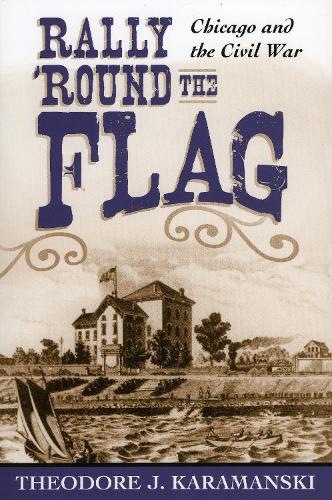
Rally 'Round the Flag: Chicago and the Civil War
(Paperback)
Publishing Details
Rally 'Round the Flag: Chicago and the Civil War
By (Author) Theodore J. Karamanski
Bloomsbury Publishing PLC
Rowman & Littlefield Publishers
10th March 2006
United States
Classifications
General
Non Fiction
Civil wars
Early modern warfare (including gunpowder warfare)
977.31104
Physical Properties
Paperback
328
Width 162mm, Height 230mm, Spine 22mm
445g
Description
In this landmark narrative history of Chicago during the Civil War, Theodore J. Karamanski examines the people and events that formed this critical period in the city's history. Using diaries, letters, and newspapers that survived the Great Fire of 1871, he shows how Chicagoans' opinions evolved from a romantic and patriotic view of the war to recognition of the conflict's brutality. Located a safe distance behind the battle lines and accessible to the armies via rail and waterways, the city's economy grew feverishly while increasing population strained Chicago's social fabric.
From the great Republican convention of 1860 in the "Wigwam," to the dismal life of Confederate prisoners in Camp Douglas on the South Side of Chicago, Rally 'Round the Flag paints a vivid picture of the Midwest city vigorously involved in the national conflict.
Reviews
Deeply researched and wide-ranging. . . . A welcome discussion of the central individuals and events in Civil War Chicago. * Journal of American History *
Rally 'Round the Flag is an impressive, informative, and scholarly history of Chicago history following the years of the American Civil War. Karamanski draws from diaries, letters, and newspapers to reveal how Chicago's public opinions on the war evolved from a romantic and patriotic naivet to a clarion recognition of the brutality of the conflict. * Midwest Book Review *
A good read and a useful summary of events. * American Historical Review *
Author Bio
Theodore J. Karamanski is professor of history at Loyola University of Chicago. He founded the Loyola Public History Program and presided the National Council on Public History. A lifelong resident of the Chicago area, Karamanski is the author of Fur Trade and Exploration, Deep Woods Frontier, Ethics and Public History, and numerous articles.
